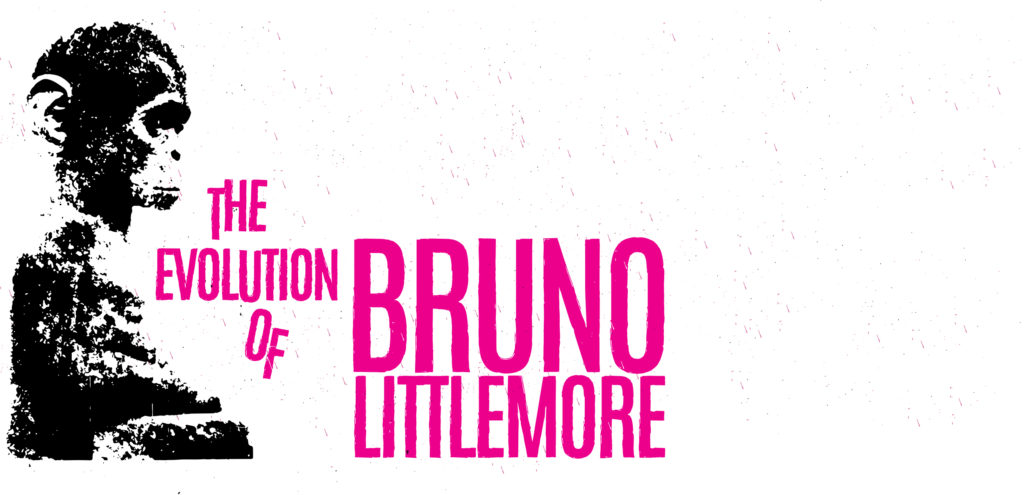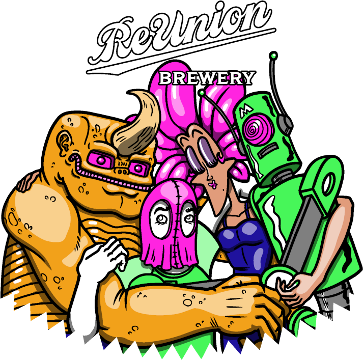Tickets
$25 Reserved Seating / $20 Seniors / $10 Students
Buy Tickets for Friday, April 29th at 7:30 p.m.
Buy Tickets for Saturday, April 30th at 7:30 p.m.
Buy Tickets for Sunday, May 1st at 2:00 p.m.
Like so many great ideas, the project was born as a casual conversation between three friends, who happen to be active in the local arts scene: Englert Executive Director Andre Perry, Working Group Theater playwright and actor Sean Lewis, and FilmScene Director Joe Tiefenthaler.
The idea: to have a local theater group adapt a book written by a Writers’ Workshop graduate into a play commissioned and produced by the Englert as part of Mission Creek Festival. They particularly wanted to showcase works by more recent Workshop grads.
Now, years later, Englert patrons will experience The Evolution of Bruno Littlemore, adapted into a play by Working Group Theater’s artistic director Sean Lewis. The book’s author, Benjamin Hale, wrote the book in Iowa City while attending the Writers’ Workshop.
To hear Lewis describe the book is in itself an experience: “You have the memoirs of the world’s first talking chimp who falls in love with the woman who teaches him to speak,” he said. “You have elements of classic plays like Woyzeck and The Tempest smashing up against evolutionary science and existential philosophy and locations that span from inside the Chicago Zoo to a nature preserve in Colorado, a theater in NYC and many, many more… It’s a nightmare from a traditional theater stand point, which makes it great theater.”
Author Benjamin Hale said he can’t wait to see how the story looks onstage — however different it may appear.
“I think the thing about adapting any story from one narrative medium to another is that any notion of ‘faithfulness’ to the source material is kind of misguided and silly,” Hale said. “The best adaptations are ‘faithful’ in spirit, but acknowledge that an adaptation, like a translation, is its own, original work of art.”
So what will it be like to watch a play where the main character is a chimp?
“Well, seeing that the Englert first asked if I wanted a real chimp for the show, it will be at least a little cleaner than that option,” Lewis said.
Whatever it looks like, it’ll be “pretty awesome,” Perry said. “Knowing Sean, it will be done well. I think it’s asking a different kind of disbelief from the audience, which is fun.”
Letter from Sean Lewis
“I need to play this role.”
I have been working with Barrington Vaxter for ten years. The play I wrote in grad school that was my first national exposure, Barry was the lead. When Hancher gave me my first commission to create Mayberry, Barry was the first actor I cast.
From the outside, someone might identify us solely as a white director and a black actor. But work is tricky that way: we’ve done plays together about race, sure, but also we’ve done plays about war and bullying and school systems and so on. We are friends and collaborators, occasional roommates and mutual activists. And yet, a funny thing happened in October while workshopping this play–I knew I was going to cast Barry in the ensemble–I always cast Barry but during the first workshop we were working with the dancers and he said, “I’m going to play Bruno, right?”
And I thought, and then said,
“No?”
“Why?”
“Because there’s no way I can cast you as that.”
See, there is an unwritten rule. It is a good one. If you are white and you are directing or writing a play you do not under any circumstances cast an African American in an animalized role. If you’re doing Sylvia by AR Gurney–which Sarah Jessica Parker acted in the cute little movie of–you do not cast a black actor as Sylvia, the talking family dog. You don’t do this because history in our country is really fucked up. Because blacks have been dehumanized for basically their entire time on the continent. So much so that we can’t make up for it, we can’t talk about it, at best we can be sensitive and not do things like that.
And I am not mocking, this is a rule I agree with. In fact, I never thought of anyone of color playing Bruno. The book isn’t about race. I was concerned trying to find an actor who was charismatic, handled text well, was brought alive by big ideas and could move incredibly well since (in a realization of how problematic the book was to stage with tons of locations, violence, sex and more so) I had decided to make the entire event a dance theater piece.
Safe to say, the book was dangerous enough without me inviting everyone to throw rocks at me for breaking the aforementioned rule. I don’t like controversy for the sake of controversy. I don’t like making people mad. I really don’t like people not liking me. Yet.
“Sean, it’s about colonization. Everything he’s saying. It’s how they were looking at me in Chicago.”
Barry had just gotten back from Chicago and I think he would be happy to tell you he did not like it very much. He was working with theater groups protesting the shootings of unarmed black men by police officers–groups that the Chicago press and theater community basically ignored.
Which is not weird, after all. Did you know, there are no regional theaters in the United States doing plays about “Black Lives Matter?” Pro or Con? None. Not just big theaters who are scared to do it, but small theaters as well. None. If theaters are the artistic town halls of our country then this subject is just not on the docket.
And the plays exist.
Me, I was not looking to stage a Black Lives Matter piece with Bruno. Full disclosure I wanted to do the book because it’s completely insane and I really saw it as a director’s challenge. How can I stage something impossible to stage.
I told Barry, “I can’t do it. Casting you in the role of a talking chimpanzee, is way beyond a bad look and I don’t really want to upset everyone that much.”
“He’s the smartest person on stage. The most interesting. The most soulful. And no one even acknowledges him. No one sees him. I’m just saying I really want to play the role.”
Barrington said, “let me play him in one workshop.” I said fine. Because our workshops are democratic. Before I cast a play and while we are still working on it I let everyone, man or woman (and usually any race), play every role. We had women reading Bruno. Men. But I had actively kept Barrington away from the role.
Now, Barry is one of the most charismatic people I know. He also moves incredibly well. Putting him with the dance company was amazing. What was more amazing was hearing him read the lines.
From the book:
“The child’s first word is not a symbol. It is not representation. No, before a word becomes any of these things it is inevitably an ACT. A beginning action. It is not the naming of the world. It is the creation of it.”
Suddenly, I saw him trying to retake the symbols, the tropes, the language–the horrible language–used to define his existence to the world around him as well as himself.
I do not pretend to know anything about the black experience. Or “Black Lives Matter.” I don’t see this as a talking point for that movement or any others. I do know that when Barrington finally said, “I have to do this.” I thought, “Who am I to say no?” If we were just a white director and black actor what would it mean if I were to assume I just naturally knew better than him? I know my friend. I have seen him with that script in his hand in hotel rooms and theaters every day since I reluctantly gave in.
I know it means something big to him. And he wants it. And I know when I’m in the room directing and he’s acting the piece something fascinating is happening.
We are not here tonight for propaganda but for exploration. Exploration is about pushing limits so that you get better. You progress. Barrington is my friend and he told me this will make him better in a number of ways — “I have to do it,” he said.
And so I go into this with him as my guide. A minefield with our eyes open. But if no one is going to talk about anything I guess I’m okay to blow myself up for him.
Letter from Barrington Vaxter
My name is Barrington Vaxter Jr. and I am Bruno Littlemore.
When I first received the script for Sean Lewis’ adaptation of Benjamin Hale’s book, I did what actors do: I tried to make sense of it all. When we talk about the work that actors do, the process begins during that first contact with the words. “The script,” we call it. And, the formation of general ideas involving the piece as a whole and the characters’ journeys. We talk about seeing the words for what they are at face value and identifying the basic narrative of who, what, where, etc. In the beginning, the actor in me said that this was a piece about a disenfranchised primate. That this was a piece that challenged the constructs and fluidity of evolution. A piece that examines the history of thought; the moment where a need fosters ambiguous babble to become an intuition and gives birth to language. These are the themes that came to my mind as an actor… initially.
I wondered then about the character of Bruno. I wondered about his inner struggle and what his deep seeded needs were. And, how they coincided or collided with the world in which he lived; in which he was caged in? The actor in me knew that on the surface, Bruno wanted to be human. But, what does it mean to be human? To be more than Ape, supposedly? At it’s core, in my opinion, to be human is to connect. It is to forge meaningful relationships through communication, to share experience through language, and expression through art. Harmoniously, it is to reciprocate and understand the complexities of emotion and to exercise that. To Grieve. To Empathize. To Respect. To Envy. To Love. To be in Love. To experience a life worth living. ‘These are things Bruno wants’, my actor self said. And, these are the things every decent human being wants to some degree.
At that moment I could of stopped but there seemed, to me, something missing. Something so obvious that it felt familiar. Like a relationship without Love. I found myself examining my own alignment with these seemingly human needs and, in turn, how I fit into the context of my own world. How did others connect with me, a black man, in today’s world? How did they engage, or disengage? What were the expectations of a black man in this world? Then, later, with more aggression…Why am I treated differently? Why does my life matter less? Why are blacks killed with such frequency? Why are the oppressed alienated economically? Why are the oppressed malnourished and isolated? Why do we kill each other? Why is this to be expected? And, how did this come to be?
The fictional world of Bruno is not that dissimilar from mine. It’s especially not that dissimilar to that of my ancestors. And whether one believes time does heal things, it is assailable that time, at the very least, gives you an idea of how things in the present came to pass; the bread crumbs of humanity from monkey to man and back.
My mind–not the actor in me this time–but my inextricably black mind, had drifted back to Bruno in a more visceral way. How his cages reminded me of slave ship corridors. How he was stripped from his family and auctioned away for the sake of science and kept alive for practicality. Dealt with from a distance like some worker you don’t respect enough to ask his story; don’t care enough about him to let him preserve it. Even when Bruno evolves past humans and is succeeded in every way one could argue as human, he is still alienated and still alone and still, somehow, less. The allusions to colonization and resulting institutional racism were face-smacking. Yes, on the surface, the piece was about some very challenging aspects of the generality of human experience, but I couldn’t deny the underlying, inextricable, nods to black and brown suffering. The piece proved to be an opportunity to acknowledge this problem in my world–that black lives don’t matter as much and to examine what could have started the mess.
I became insistent that this story about a chimp who ascends to intellectual levels far beyond any human, despite worldly expectations, was the perfect platform to examine any dehumanization; that I’d be proud to use his poetry and his progressive thoughts on language and emotion to analyze social constructs that have been flawed since the dawn of slavery. It would be moronic not to examine the black and brown experience in the context of Bruno’s in some small capacity. This idea that, when you steal a human being from their home, treat them as a second class citizen, attempt to colonize their mind and body, and then set them “free” into a system that they were never meant to succeed in, you lay the groundwork for an entire race to never to recover. More importantly, when black and brown lives are given the opportunity and when any human is given the respect and the love that they so superbly deserve, they often excel in ways that shift the paradigm for the better.
I am Bruno Littlemore, a black man, and I want to shift the paradigm.
With Diligence,
Barrington Vaxter Jr.
Sponsored by the Iowa Arts Council and the Iowa Department of Cultural Affairs, Little Village Magazine, Nolte Academy, and Hands Jewelers.












